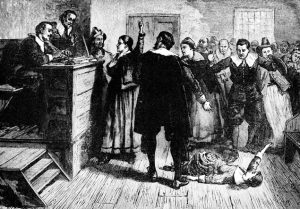Go to Page Section:
Personal injury cases have complex structures that require thorough investigation for fair resolutions.
Sometimes, victims stay vigilant to identify the negligent party, ensuring that the right individual is held accountable for the injuries sustained in the accident.

However, there are instances when the situation calls for nuanced investigation, particularly when a third party is liable for the losses suffered by the victims.
In this context, the case pertains to vicarious liability laws.
Whether you are an employer, employee, or an injured party seeking justice, understanding this legal principle is vital to navigating workplace and business-related disputes.
But what is vicarious liability law? Let us know the term and its key elements affecting the judgments in personal injury cases.
Understanding Vicarious Liability Law
Vicarious liability law is a legal doctrine that holds an individual or entity responsible for the actions of another person.
Typically, this principle applies in employer-employee relationships, where an employer may be held liable for an employee’s wrongdoings within the scope of their employment.
This concept plays a crucial role in ensuring accountability and justice for victims.
Key Elements of Vicarious Liability Law
To establish vicarious liability, you must understand what vicarious liability law is.
And certain elements must be proven in court.
Having a skilled lawyer who understands the intricacies of a case and gathers prudent evidence in your favor can significantly impact your case.
However, to understand these elements a bit better, here is detailed information on the factors influencing the verdict of a case:
Employer-Employee Relationship
For vicarious liability to apply, a clear employer-employee relationship must exist.
Independent contractors do not fall under this category unless specific control measures indicate otherwise.
Courts analyze the degree of control an employer has over an individual to determine whether vicarious liability law applies.
Act Committed Within Scope of Employment
The wrongful act must have occurred within the course of employment.
The employer may be held accountable if an employee causes harm while performing job duties.
However, under vicarious liability law, the employer may not be liable if the employee acted outside their professional responsibilities.
Negligence or Wrongful Conduct
In most cases, vicarious liability arises when an employee’s negligent or wrongful conduct harms another person.
This may include workplace accidents, harassment, discrimination, or other unlawful acts while fulfilling job responsibilities.
Common Examples of Vicarious Liability Cases
While it is assumed in some cases that the third party or the owner of the workplaces should held liable for the injury or loss.
To know what is vicarious liability law?
And how the law comes into play in many everyday situations, here are some examples, such as:
Workplace Harassment and Discrimination: If proper preventive measures are not in place, employers can be liable for workplace harassment or discrimination employees commit.
Medical Malpractice: In workplaces such as Hospitals and healthcare institutions, doctors, nurses, or medical staff may be held accountable for negligence. Victims in such institutions must report to high authorities and seek proper legal assistance on time.
Car Accidents Involving Company Vehicles: If an employee causes an accident while driving a company vehicle for work-related purposes, the employer may be liable for damages.
Retail and Security Incidents: Businesses may be responsible for any harm caused by security personnel or retail staff while on duty.
Defenses Against Vicarious Liability Claims
Employers facing vicarious liability claims can use several defenses to protect themselves from legal repercussions:
Employee Acting Outside the Scope of Employment: Employers may not be liable if an employee’s wrongful actions were personal and unrelated to work and demonstrated no direct connection to job responsibilities.
Independent Contractor Status: If the accused is an independent contractor rather than an employee, the employer can argue against liability, as contractors operate with greater autonomy and control over their actions.
Adequate Training and Policies: Employers who provide thorough training, implement strong policies, and enforce preventive measures against misconduct can use these proactive steps to defend themselves in court.
Conclusion
Vicarious liability law ensures that individuals and businesses take responsibility for the actions of those under their control.
Whether you are an employer seeking legal protection or a victim pursuing justice, understanding the complexities of this legal principle is crucial for achieving fair outcomes.
If you need legal assistance regarding vicarious liability law, Catania & Catania can help.
With a dedicated team of legal professionals, they offer expert guidance and representation to protect your rights.
Contact us today for a consultation and take the first step toward resolving your legal concerns.


Leave a Reply